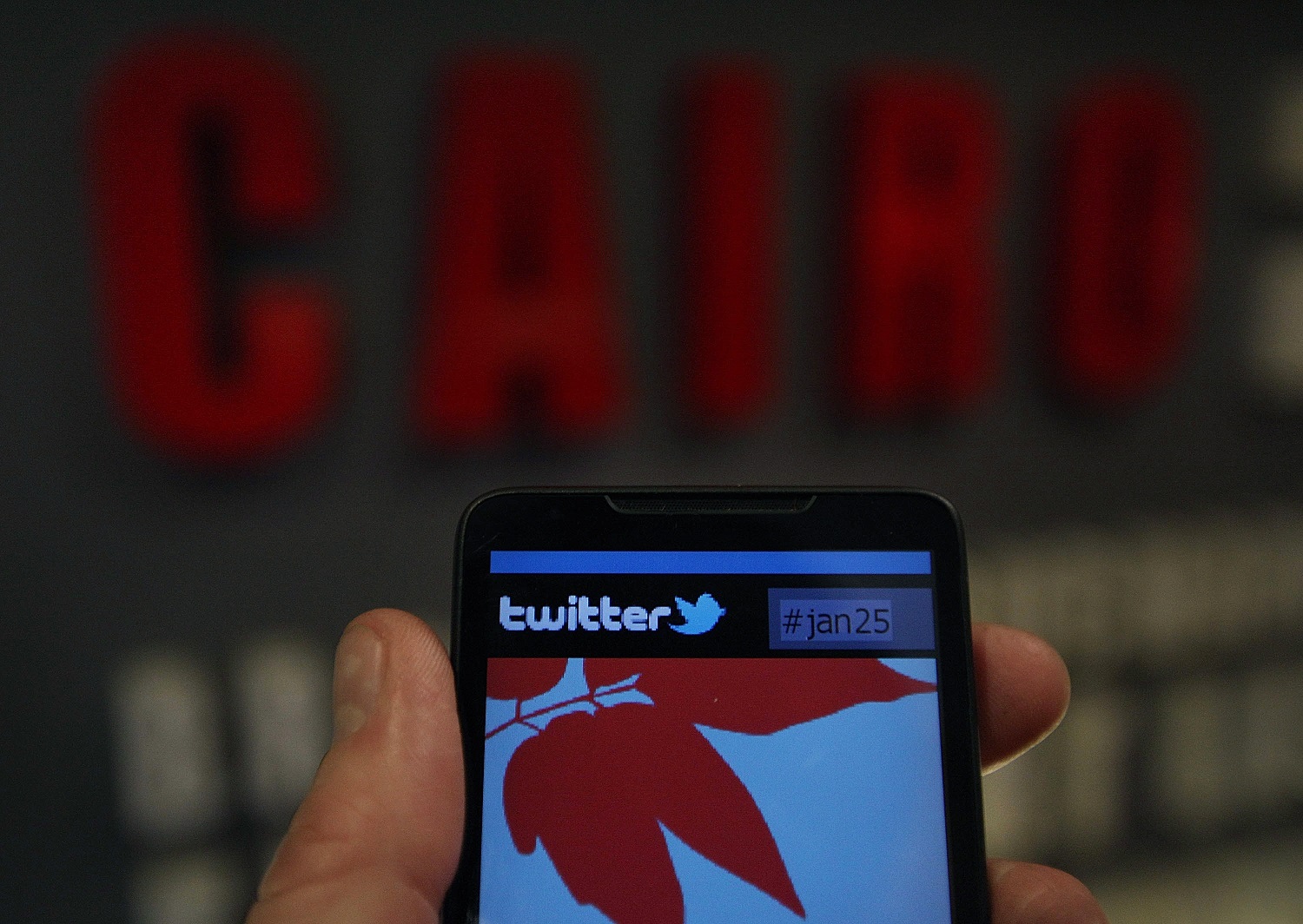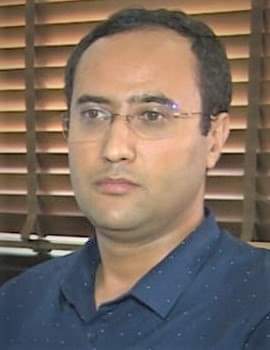"الشبكات الاجتماعية صنعت الربيع العربي، لكنها فشلت في المحافظة عليه".. خلاصة تكاد ترقى إلى الإجماع بين مراقبي الشأنين الإعلامي والسياسي في المنطقة العربية، في وقت حلم فيه الكثيرون قبل عقد من الزمن، بسقوط آخر جدار يصدّ مواطني الدول العربية عن ولوج منطقة الشعوب الحرة.
قد تسعف بعض الدراسات والأبحاث التي أنتجتها مراكز البحث والجامعات بخصوص الانحراف الذي وقع في مسار الثورات العربية الأخيرة، وما رافقه من "خدلان" الإعلام البديل وسرعة احتوائه من طرف الأنظمة وقوى الثورات المضادة، إن على مستوى داخلي في جل الدول العربية أو على صعيد إقليمي؛ لكن القصة أكبر من أن يلخصها عمر المنصات التي ولدت في مطلع الألفية الحالية، وفهمها لا ينفكّ عن ذلك المسار الطويل من الإخضاع والترويض الذي قامت به الأنظمة العربية لما يقرب القرنين من الزمن.
فمنذ دخول الطباعة، متأخرة عن لحظة اختراعها ببضعة قرون، ومرورا بكل أشكال التطوّر الإعلامي التي عرفها العالم، كان حلم الفتح التحرري الذي يحمله "الترانزيستور" أو الشاشات -بقديمها وجديدها- أو الشبكة العنكبوتية، يتحوّل إلى سراب.
والغريب في هذه المتلازمة العربية، أن الأنظمة السياسية تلتقي في مسعى التطويع والإخضاع تجاه المستجدات الإعلامية، سواء حسنت علاقاتها البينية أو ساءت، ففي كلتا الحالتين، يكون العمل الصحفي وأخلاقياته واقتصاده ونظمه القانونية، هو الضحية الأولى.
الصحافة أخت السياسة
ترتبط الصحافة منذ نشأتها الأولى -بشكل أو بآخر- بالسياسة وحساباتها، لدرجة يمكن الجزم معها بملازمة الفعل الإعلامي لنظيره السياسي، بغض النظر عن اختلاف الأنظمة والسياقات الثقافية والتاريخية والاقتصادية.
لقد شكّلت الصحافة دائما أداة تأثير سياسي عبر المساهمة في خلق وتأطير الرأي العام، وتوجيه اختيارات صاحب القرار من خلال الأولويات التي تحددها الممارسة الإعلامية، والدفاع عن مصالح معينة بالتعبئة والترويج للأفكار، سواء على الصعيد الداخلي للدول أوفي مواجهة الأطراف الخارجية.
ومثلما يساهم الإعلام في البناء الداخلي، يؤثر أيضا في صناعة السياسات الخارجية للدول من خلال التغطية الدائمة لما يجري في العلاقات الدولية من أحداث وصراعات، خاصة تلك التي تعني -بشكل مباشر أو غير مباشر- الدولة التي تنتمي إليها الوسيلة الإعلامية، وهو ما يحمل السلطات على مراعاة اختيارات ورغبات الرأي العام.
ونظرا لاشتراك صحافة الدول العربية في المرجعية اللغوية الموحدة، وتبادل التأثير بين التجارب الإعلامية العربية، فقد ظلّ مسار تطوّر الصحافة في هذه المنطقة رهينة تأثير مشترك بين كل من الوضع السياسي الداخلي لكل دولة، والتطوّر العام للأوضاع الإقليمية العربية. ولا أدلّ على ذلك مما اشتركت فيه المنطقة من حراك شعبي شبه عام، من المحيط إلى الخليج، إبان ما يعرف بالربيع العربي.
دور وطني قديم
لقد شكّلت المنصات الإعلامية العربية خلال الفترة الاستعمارية ملاذا للقوى التحررية العربية، يساند بعضها بعضا. ويكفي أن نذكّر هنا كيف سارع أحد أبرز قادة الحركة الوطنية المغربية علال الفاسي إلى بث ندائه الشهير عبر إذاعة "صوت القاهرة" أين كان منفيا، داعيا إلى الثورة ضد الحماية الفرنسية دقائق قليلة بعد إقدامها على نفي السلطان الشرعي للمغرب يوم 20 أغسطس/آب 1953.
وحتى أبقى مقتصرا على المثال المغربي الذي أعرفه جيدا، فإنه مباشرةً بعد حصول المملكة المغربية على استقلالها، وبينما كانت أراضيها معبرا لشحنات الأسلحة "العربية" الموجهة لدعم الثورة الجزائرية، خاصة تلك التي جادت بها الثورة الناصرية؛ كان الإعلام المغربي يقوم بدور "التغطية" لظهر الثوار الجزائريين ضد الاحتلال الفرنسي. وبعد أقل من أسبوع من تولي الحكومة المغربية سلطة الإذاعة الوطنية من يد الفرنسيين، بدأ بث برنامج مخصص لمواكبة الثورة الجزائرية.
وفي بداية العام 1960، اشترت الحكومة المغربية محطة "راديو طنجة" من شركة "طوربي كيبيدو"، وأصبحت بذلك تحمل اسم "صوت المغرب" بإرسال يمتد لـ15 ساعة يوميا باللغات العربية والفرنسية والإسبانية. وكان من أول القرارات المتعلقة بهذه المحطة، أن خصصت ست ساعات يومية لـ"صوت الجزائر الحرة والمناضلة"، كقناة لبث تعليمات وبلاغات جيش التحرير الوطني وجبهة التحرير الوطني الجزائرية، بناء على اتفاق بين الحكومة المغربية والحكومة المؤقتة الثورية الجزائرية، وكان ذلك تجسيدا لإرهاصات أدوار وطنية للإعلام، تجمع بين تحقيق التلاحم العربي وبين التعبير عن صوت المواطن وإرادته.
نشوء الصحافة في المنطقة العربية في سياق تطلعات المنطقة نحو الاستقلال عن الاحتلال الأجنبي، جعلها تطوّر خطابات وطنية قطرية، حيث كانت الصحف الأولى تعمل على تعزيز الشعور بالانتماء الوطني، مساهمة منها في التعبئة من أجل المقاومة والحصول على الاستقلال.
النكسة الأولى
بعد استقلال مصر، ومع تطلّع الرئيس الراحل جمال عبد الناصر إلى تزعم حركة التحرر العربي، أصبحت صحف ومجلات وإذاعات القاهرة آلة دعائية مرهوبة الجانب، يسلّطها عبد الناصر على الاستعماريْن الفرنسي والبريطاني في المنطقة العربية، وإن كان قد وجّه أيضا ضد القادة العرب الذين عارضوا طموحاته وأفكاره.
النكسة الإعلامية العربية الأولى وقعت في هذه اللحظة بالذات، حيث باتت المنابر الإعلامية خاضعة لقبضة الأنظمة، مما جعلها تطوّر نوعا جديدا من الخطاب الوطني، يرتبط أساسا بتمجيد الحكام وترسيخ سلطتهم وتجديد أو توليد شرعيتهم، رغم تأسيس أغلبهم لنظام الحزب الواحد وإغلاق صحف الأحزاب والتيارات المعارضة.
وحدها العاصمة اللبنانية بيروت كانت تشكل الاستثناء والجزيرة المعزولة وسط محيط الدكتاتورية الإعلامية العربية، حيث سمح الواقع الثقافي والسياسي المتميز للبنان -أي تنوعه الداخلي الكبير- بتطوير صحافة متنوعة، مما جعل جلّ التيارات السياسية والفكرية العربية تجعل من بيروت قبلة لها من أجل التدافع الفكري والبحث عن التقرب من الصحف القائمة أو دعم أخرى جديدة للحصول على حضور في حلبة النزال بين التيارات الناصرية والملكية والسنية والشيعية... قبل أن تأتي الحرب الأهلية اللبنانية، ربما بسبب انفلات هذا التنافس العربي حول صحافتها كما يقول البعض، لتجبر أغلب الأقلام الصحفية على الهجرة والمنافي.
فضائيات الأنظمة
أول "ثورة" إعلامية عرفتها المنطقة العربية كانت مع إطلاق صحف ناطقة بلغة الضاد، تخاطب مجموع دول المنطقة، وتصدر في غالبيتها من العاصمة البريطانية لندن، لكنها تطبع وتصدر في اليوم نفسه في جل العواصم الدولية بفضل تقنيات الإرسال عبر الأقمار الصناعية.
كانت هذه أول موجة من التدفق الغزير والموحد للأخبار والآراء على شعوب المنطقة العربية من طرف المنصة نفسها، بدل النشر والتوزيع القُطري الذي كان ينتقل إلى بعض الدول بشكل متأخر في السابق، أي دون أن يكون له تأثير في تشكل الرأي العام ومسار الأحداث.
بعد ذلك، شهد عقد التسعينيات ظهور القنوات الفضائية التي شكّلت تحديا كبيرا للمحطات التلفزيونية التقليدية، الخاضعة للرقابة الكلية والمباشرة من جانب الأنظمة. ثم جاءت شبكة الإنترنت لتكسر ما تبقى من حدود وحواجز بين شعوب ودول المنطقة العربية.
النكسة الكبيرة الثانية التي منعت انبثاق إعلام عربي مهني ومستقل، ستجهض حلما آخر بانعتاق المواطن العربي من قبضة الاستبداد السياسي الإعلامي، الذي رافق ظهور إعلام عربي جديد، سواء المطبوع الذي صدر في السبعينيات والثمانينيات من بعض العواصم الغربية، أو بعد ظهور القنوات التلفزيونية الفضائية المتمردة على قوالب البث الأرضي ذي الهالة السيادية.
في دراسة أنجزها معهد واشنطن لسياسات الشرق الأدنى عام 1998 لمعرفة تأثير ما كان يسمى وقتها "الإعلام الجديد" -أي القنوات الفضائية وشبكة الإنترنت- على العالم العربي، ومساعدة صانعي القرار في الولايات المتحدة على التعاطي مع المنطقة العربية بما يخدم المصالح الأميركية، نقرأ ما خلص إليه الدكتور جون ب. ألترمان الذي أشرف على عمل فريق كبير من الباحثين لهذا الغرض، من تحوّل عميق أحدثه "الإعلام الجديد" وقتها في العالم العربي، بدءا من الصحف الموجّهة إلى دول المنطقة جميعها، والتي ظهرت في الثمانينيات والتسعينيات، مرورا بالقنوات الفضائية، ووصولا إلى الإنترنت.
من يدفع الثمن؟
لقد دخلت المجتمعات العربية القرن 21 وهي تتمكن أكثر فأكثر من قراءة ومشاهدة وسماع نفس الأخبار والآراء في الوقت نفسه، وهو ما لم يكن متاحا في أي وقت سابق. شهد عبور المنطقة العربية من القرن 20 إلى القرن الحالي طفرة كبيرة في عدد القنوات الفضائية، حيث انتقل من أقل من 30 قناة في بداية عقد التسعينيات، إلى قرابة 1400 قناة في العام 2015.
ورأى كثير من المختصين في ذلك فرصة لمنح المواطن العربي حرية أكبر وولوجا أسهل إلى الأخبار والمضامين الإعلامية، لكون المنصات الجديدة معنية بإرضاء تطلعات المتلقي العربي (المستهلك) بدل الأنظمة، بالنظر إلى أنها لم تعد مرتهنة بسوق محلية محدودة ولا تحت سلطة الدول التي تبث فيها رسائلها الإعلامية.
والحقيقة أن ما انتهى إليه الإعلام العربي، تكاد توجزه مقدمة تقرير أصدرته الشبكة العربية لمعلومات حقوق الإنسان عام 2007، وحمل عنوان "من يدفع الثمن؟.. إعلانات الصحف المصرية لتجميل صورة الدكتاتورية التونسية".
كان المقصود في تلك الوثيقة هو الإعلانات التي تنشر على أنها مضامين صحفية لتلميع صورة نظام الرئيس التونسي الراحل زين العابدين بن علي في إعلام بعض الدول العربية، دون الكشف عن حقيقتها كإعلانات مدفوعة الأجر، ولا عن هوية من يدفع. وشكّل ذلك نموذجا عن كيفية تأثير الأنظمة العربية داخل الرأي العام لبعضها البعض.
الربيع العربي.. النكسة الثالثة
في عموده الثابت الذي تنشره صحيفة "القدس العربي"، اختار الكاتب العراقي مثنى عبد الله في مستهل أبريل/نيسان 2020، أن يرصد ظاهرة الإعلاميّ العربيّ الذي تحوّل إلى مهرّج في "سيرك" الخلافات العربية. وروى عبد الله قصة صاحب قناة فضائية كانت تبث من شقة لندنية صغيرة، جاعلا إياها منصة للتزلّف لحكام وأمراء المملكة العربية السعودية، ثم سرعان ما قلب معطفه ليهاجمهم، معتقدا أنه سيحصل تلقائيا على احتضان دولة قطر، وهو ما خاب أمله فيه، فعاد من جديد "ليُسبّح بحمد السعودية ويشتم قطر".
الإعلامي في نظر جميع المختصين -ومنهم مثنى عبد الله- ليس كائنا مجردا من الآراء والقناعات الشخصية، لكن وظيفته تقف عند التحري والتقصي والوقوف على المسافة نفسها من الآراء بنزاهة، وهو ما يحقّق له التراكم الذي يُكسبه المصداقية والتأثير والقدرة على صنع الوعي.
الواقع أننا بعد الربيع العربي، نعيش نكسة جديدة في حلم خروج مشروع تحرر الشعوب العربية من رحم الإعلام الذي يستفيد من ثورة تكنولوجية بعد أخرى. وإذا كانت للردة السياسية الشاملة التي عرفتها الدول العربية -سواء تلك التي تحوّل ربيعها إلى حروب دموية، أو التي حافظت على استقرارها المؤسساتي- وجوه عدة، فإن أوضحها على الإطلاق هما الاحتواء والإخضاع اللذان مارسهما النظام الإقليمي العربي ضد الفرص التي يتيحها عصر المعلومات المتدفقة والمنصات العابرة للحدود.
هي القصة نفسها التي عاشتها أجيال سابقة في القرن الماضي، تكرّرت في العقد الأخير. فبعد لحظةٍ تمكّنت فيها الشعوب من التعبئة والتنظيم مستفيدة من غفلة الأنظمة وعجزها عن فهم الشبكات الاجتماعية، كما يؤكد جوشوا تاكر أستاذ علم السياسة في جامعة نيويورك، والباحث الرئيسي في مختبر الشبكات الاجتماعية والمشاركة السياسية، لم تكتفِ الأنظمة التي تخشى زوال استبدادها، بالقمع والتضييق على منصات "الإعلام الجديد"، وإنما تمكّنت من "التعلّم" السريع، وبات جزء كبير مما تتيحه الشبكات الاجتماعية في خدمة الحكام، على حساب ما كان يُفترض أن تحققه من تعزيز لسلطة الصحافة وتسهيل لرواج الأخبار الصحيحة والآراء المتنوعة.
لا بيضة ولا ديك
تفضي بنا هذه القصة الحزينة إلى إعادة طرح السؤال اللغز: هل الإعلام القوي والصحافة المهنية نتيجة لقيام الديمقراطية أم شرط سابق لتحقيقها؟ وأي محاولة لترجيح هذا الجواب أو ذاك، لن تقدّم فائدة تذكر سوى محاكاة لغز "الديك والبيضة"، لأن الأمر يتعلق في الحقيقة بوجهين لعملة واحدة.
العبور نحو برّ الدولة الديمقراطية والشعوب الحرة يحتاج إلى عبور مماثل نحو صحافة مهنية ومستقلة، والسعي إلى أحدهما لا يمكن أن يتم بمعزل عن الآخر. وحتى أبقى داخل المثال المغربي الذي أعرفه أكثر من غيره، فإن الطفرة التي عاشتها المملكة قبل نحو 20 عاما بظهور صحافة ورقية مستقلة ومهنية، سرعان ما تبدّد وانتكس بسبب غياب بناء مؤسساتي ونخبة سياسية ووعي صلب بحتمية التمكين للمواطن، من أجل بناء الدولة الحديثة.
مصادر:
https://www.wired.com/2016/01/social-media-made-the-arab-spring-but-couldnt-save-it/
"الإعلام وتأثيره والسياسة الخارجية"، المركز الديمقراطي العربي، دراسة بحثية، فبراير/شباط 2020
https://www.maghress.com/alalam/1486
"تأملات في الحرب الإعلامية"، سبأ عبد الله باهري، دار سيبويه للطباعة والنشر والتوزيع.
https://www.washingtoninstitute.org/uploads/Documents/pubs/PolicyPaper4…;
https://arabic.cnn.com/ARAB-SATELLITE-CHANNEL-STATISTICS
https://www.wired.com/2016/01/social-media-made-the-arab-spring-but-couldnt-save-it/




















![Palestinian journalists attempt to connect to the internet using their phones in Rafah on the southern Gaza Strip. [Said Khatib/AFP]](/sites/default/files/ajr/2025/34962UB-highres-1705225575%20Large.jpeg)




















